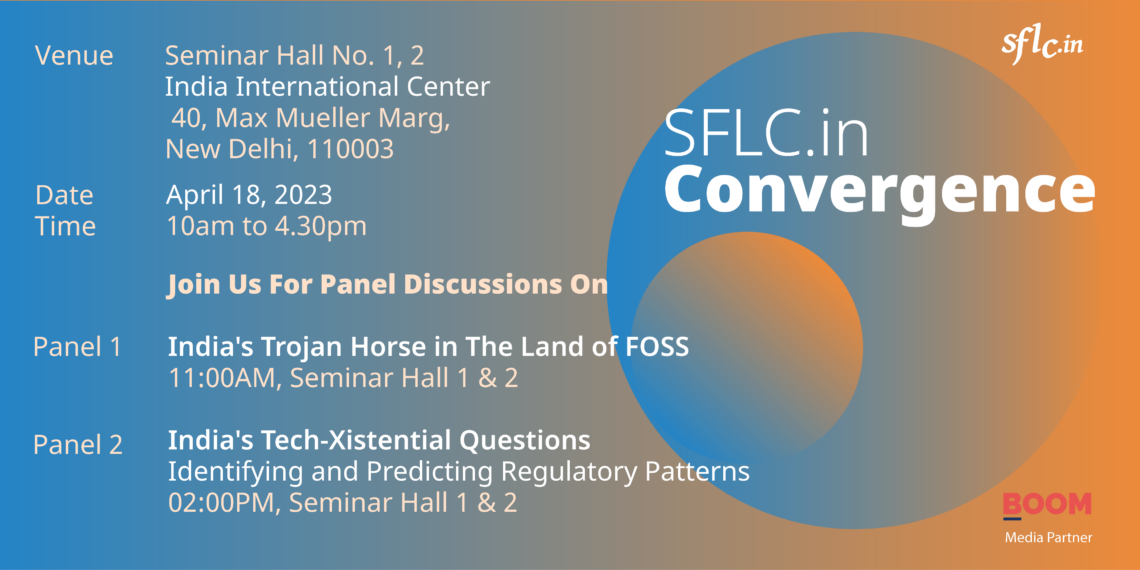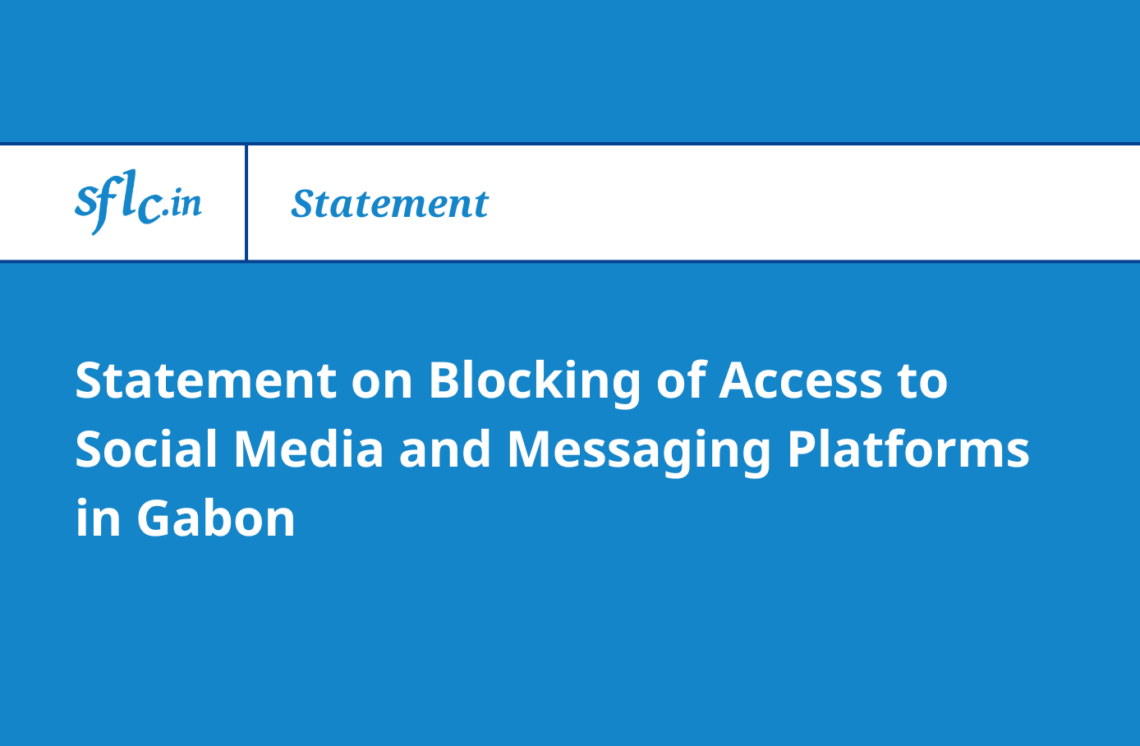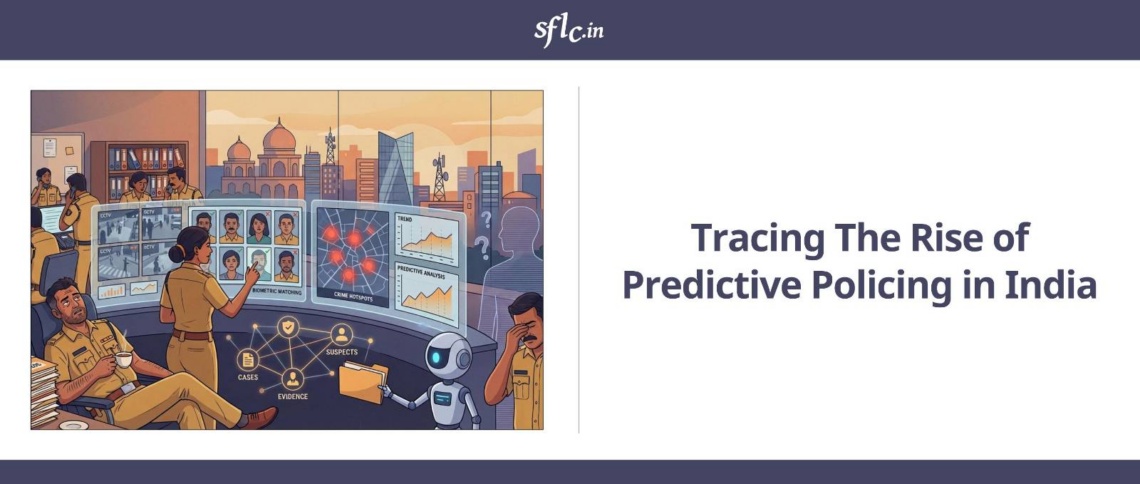SFLC.in hosted ‘SFLC.in Convergence’ at the India International Center, New Delhi which consisted of panel discussions on ‘Software Patents’ and the proposed Digital India Act.
The discussion on Software Patents focused on the patentability of software and computer programmes under the Indian Patent Act and other manuals or procedural documents. This panel was addressed by Mr. Venkatesh Hariharan (Public Policy Director of FOSS United), Mr. Prasanth Sugathan (Legal Director, SFLC.in), Dr. Nagarjuna G (Chairman, Free Software Foundation India), Ms. Swathi Sukumar ( Lawyer), Dr. V. Sridhar (Prof of IT and Public Policy at IIITB) and Ms. Mishi Choudhary (Founder, SFLC.in) as moderator. The panelists talked about the increasing number of software patents being granted in India despite the explicit exception, and its impact on innovation and development in India. Further, the disparities in the number of software patents granted to foreign entities versus Indian tech players and the effect this has on the Indian tech industry were also covered.
The second panel on Digital India Act saw a multifaceted conversation about the technological advancements in India. Mr. Rakesh Maheshwari (Senior Director and GP Coordinator, Cyber Laws and Data Governance, MEITY(Rtd.), Mr. Ashish Aggarwal (Vice President and Head of Public Policy, NASSCOM), Prof. Subodh Sharma (Associate Dean, Academics, and Pankaj Gupta Chair Professor in Privacy and Decentralisation, IIT Delhi), Dr. Karnika Seth (Advocate, Supreme Court of India), and Ms. Mishi Choudhary addressed this panel.
The panelists examined the regulatory patterns and how legislative directions and policy initiatives influence them with a focus on the Digital India Act.
After the panel discussions, SFLC.in launched a report on Software Patents in India – Law and Practice. The report noted that the Indian patent law expressly excludes business methods, computer programmes per se, mathematical methods and algorithms from the patentable subject matter. Notwithstanding this statutory position, it is seen that several patents have been granted in the area of software and business methods in India.
Mishi Choudhary, Founder, SFLC.in said: “Digital India and the thriving Indian start up scene doesn’t require the threat of software patent litigation where lawyers make money and innovation suffers. Patent office needs to correct this broken policy immediately. Digital India Act should put people and their rights at the center and not only the priorities of the Government or Industry. Consultations should be wide-reaching and simple, as Technology impacts everyone, not just the privileged few.”
Prasanth Sugathan, Legal Director, SFLC.in said: “It is important for the patent office to ensure that the manual and guidelines are fully in tune with the law and the legislative intent of the parliament. Executive actions should not result in software patents being allowed through the backdoor.There should be a proper and effective consultation process for the Digital India Act. It should not be a namesake exercise just to tick the right boxes.”
Dr. Karnika Seth, Advocate, Supreme Court of India said: “Appropriate and limited regulation catering to that particular intermediary and the types of harm that they pose.”
Mr. Ashish Aggarwal, Vice President and Head of Public Policy, NASSCOM said: “In this discussion, if the users are not in the center but accountable in the center, the conversation becomes about power and money. The IT Act has run its expiry date. Globally we have seen regulators that have gone through regulation in a selective manner. In India, there has been no consistency in the process of regulation.”
Mr. Venkatesh Hariharan, Public Policy Director of FOSS United said: “Software patents are a form of neocolonialism. They are a method for developed countries to control the value chain.”
Dr. Nagarjuna G,Chairman, Free Software Foundation India said: “Granting software patents is beneficial for large monopolies and not smaller software developers.”
Prof. Subodh Sharma,Associate Dean, Academics, and Pankaj Gupta Chair Professor in Privacy and Decentralisation, IIT Delhi said: “Data localization only makes sense once it is clearly articulated in law how it would be regulated. Tech companies cannot assign their own regulators but would have to sync up with government agencies. Whatever privacy harms occur must be detected ex-ante and not ex-post. We need to see how purpose limitation would be regulated by the DPDPB, especially for hardware entities dealing with large volumes of data.”
Mr. Rakesh Maheshwari,Senior Director and GP Coordinator, Cyber Laws and Data Governance, MEITY(Rtd.) said: “Accessibility has substantially improved. The digital divide has increased, but that does not mean that progressive steps should not be taken.”
The Software Patents Report can be accessed at – https://sflc.in/software-patents-in-india-law-and-practice/




